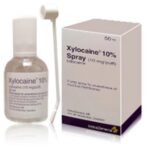What causes cold sores?
Cold sores are caused by herpes simplex virus. There are two types, called type 1 and type 2. You can catch either type on any part of the body. Lips and genitals are usually where we catch them.
This page about facial cold sores. Other names are fever blisters, facial herpes or herpes labialis. They are usually caused by type 1.
For children, we have a junior leaflet that is easy to read. There is a cold sore leaflet for adults that can be downloaded too.
How are cold sores caught and passed on?
You catch cold sores by kissing someone with cold sore virus on their mouth.
Oral sex can transmit the virus. You can catch if off another person’s genitals if they have genital herpes. You can infect another person’s genitals by doing oral sex when you have a cold sore.
You might have caught it in the last two weeks. Or maybe you caught it when you were a child, by being kissed by a relative.
The virus can enter ordinary skin such as on the hand/fingers but only if there is broken skin to allow entry. A cold sore on the finger is called a whitlow.
image You are very unlikely to pass on a cold sore to someone who already gets them (no matter where on the body they appear).[1] This is because they have antibodies throughout the body which protect them..
You are very unlikely to pass on a cold sore to someone who already gets them (no matter where on the body they appear).[1] This is because they have antibodies throughout the body which protect them..
Can I transmit cold sore virus on my hands, cups, clothing? Is herpes simplex passed on via objects?
Cold sores are only caught by direct skin contact, with the affected area. They are not caught through sharing cups, cutlery, towels, lipstick, etc. (unless there is warm pus on the item). You won’t carry virus on your fingers unless you have just this second touched an active cold sore.
Experts are definite that cold sore virus is not spread via objects, though this fact is sometimes ignored by unreliable sources on the Internet and elsewhere.
When can I kiss after a cold sore?
It does not matter if the colour of the skin is still paler or pinker than it was before – as long as it is a solid layer.
You must wait till the cold sore has healed up fully. That means that the skin is intact. Any scab or crust must come off by itself. There should not be any moisture (oozing) on the skin.
Does it make any difference which type of herpes causes my cold sores?
On the face, herpes simplex type 1 is more likely to return than type 2. If you are getting repeated cold sores, then you probably have type 1.
Some people have more frequent cold sores than others. This is based partly on how good the genes you have inherited are at controlling the virus. If you are unlucky and get frequent sores: the lifestyle changes mentioned below might help.
Can I spread a cold sore around myself? Can I give myself genital herpes from a cold sore?
Can I spread a cold sore to a new place on my body? No, this is very unlikely. Once the first infection is over, you will have made antibodies that will prevent you from catching the virus again on your hand, leg, etc. If this was something that happened, every child with a cold sore would have spread it to their hands, or other places on their body. And we don’t see that.
And this means you are not expected to catch the same virus again on a new part of your body. This is as unlikely to happen as catching chickenpox for a second time.
Will cold sores make me ill?
When you first catch a cold sore, you can sometimes have ulcers inside the mouth and throat as well as, or instead of, sores on the lips. You may have a fever and other flu-like symptoms. A painkiller can help: ibuprofen or paracetamol.
Repeat cold sores (recurrences, flare-ups) will be on the edge of the lip, not inside the mouth.
There are many other things that will cause ulcers inside the mouth. A dentist or pharmacist might be able to help with those.
What else could it be?
There are many other things that will cause ulcers inside the mouth. A dentist or pharmacist might be able to help with those.
Canker sores are very similar to cold sores inside the mouth. They are caused by bacteria, not virus. An experienced doctor or dentist could tell the difference, or a swab test could be done.
How common are cold sores?
Cold sores are very common. In Britain, about seven in ten people have caught one of the viruses that cause them. However, most people don’t know they have caught them, as only one in three will notice symptoms.
If you went on to catch the other type you would be likely to have no symptoms, or they would be very mild symptoms.[This is because the antibodies that fight one herpes simplex virus also help to control the other one.
What are cold sores like?
- First a small red patch appears
- A blister or cluster of blisters develops.
- The blister bursts, leaving a raw area.
- The raw area begins to heal and scab.
- Scabs may crack when you move your mouth and this will delay healing. Try to keep the skin moisturised – see our self-help suggestions below, or try the lemon balm cream (Lomaherpan) or lip salve (LomaProtect).
- Do not pick at the scab – this will delay healing.
- Wash your hands before and after applying cream.
- The sore will heal itself without scarring, usually in about 7-10 days.
How can cold sores reappear?
The virus stays in a nerve junction near the spinal cord and may sometimes reappear, from time to time.
Other herpes viruses also hide away and may recur; for example, chickenpox/shingles and glandular fever, but they do not cause cold sores.
Can my cold sore appear anywhere else on my body?
This is almost impossible. If you caught your cold sore on your lips, it might reappear elsewhere on your face, but it cannot reappear elsewhere on your body. You make antibodies in response to the virus, and they prevent you from spreading it to a new area. They also make it unlikely that you will catch it again.
Will I know if a cold sore is about to come back?
You may feel an itch, tingle or shooting pain first. Repeat cold sores are nearly always much milder than the first ones.
What triggers a recurrence?
Triggers vary from person to person: try to find out what causes your outbreaks to see if they are something you can avoid. Common reasons for recurrences are illness, stress, tiredness, being run down, having a period, too much alcohol or ultraviolet (UV) light from the sun or sunbeds.
Our suggestions for preventing cold sores?
A healthy lifestyle can help to keep your immune system in good shape and make cold sores less likely. Avoid any triggers you have identified and:
- Get enough sleep
- Improve your diet. New research has found that one reason for too many cold sores is a lack of selenium. One Brazil nut per day gives a very good dose of selenium.
- You might like to try an immune support product. The two capsules shown on our shop page have been tested by us, using our members as volunteers. Both of these products helped two thirds of the people taking them. (This is a good result – don’t believe anyone who claims 100% success rate!)
- If sunlight or sunbeds trigger your outbreaks, use a good quality sun block, especially on the lips.
- It is best to prevent the cold sore from coming out. Once it is there, treatments can only shorten the duration of the cold sore. As well as the general rules above, you might want to try lemon balm cream – see below.
Can I take anything to stop getting frequent cold sores?

Antiviral tablets may be prescribed for cold sores. If you get an unacceptable number of outbreaks, talk to your doctor. You can see the dosage that is given for preventing recurrences on our ‘treating herpes‘ page (3rd bullet point).
Antiviral tablets are a more effective way of treating and preventing cold sores than antiviral creams. Also, see treatment and self-help suggestions sections below.
What treatments can I buy at a chemist's shop?

Some creams contain anaesthetics (e.g. lidocaine 5%, benzocaine, prilocaine or tetracaine) which will stop any soreness if a cold sore breaks through. You can see a list of some of these anaesthetic creams. [Also, a small trial has shown that a lidocaine 5% ointment prevented outbreaks in one in three of the people testing it and shortened the outbreaks that did break through from 5 days to 2 days.] You do not need a prescription: politely tell the pharmacist to check the list if he/she says otherwise. If they ask “What for?” you are allowed to say “I would rather not tell you.” This can be handy, because you don’t want them to try to persuade you to buy other cold sore products.
Antiviral creams containing aciclovir are widely available. If you start using them at the ‘tingle’ stage, they can shorten the outbreaks by 12 percent (from an average of 7 days down to 6 and a quarter days).
Can I get rid of cold sores?
Like many other viruses, bacteria and fungi, these remain in your body. Chickenpox and thrush are two other common infections that will not leave… Treatment can be used to prevent cold sores from ever appearing. Prescription treatment on shown on our ‘treating herpes‘ page (2nd bullet point). Or try ‘melissa officinalis cream. We get Lomaherpan from Germany (by public request!) and you can buy it on our shop page. Many people (including the HVA office staff) find that when used promptly it will stop the cold sore in its tracks.
There are many adverts on the internet which claim to shorten the recurrences “get rid of cold sores quickly”. Use the antiviral pills or the melissa officinalis cream when you first feel something, and then you should not need to “heal cold sores more quickly” because the cold sore does not come out.
What self-help suggestions may help prevent cold sores?
Some people with cold sores have said that applying a wrapped ice pack to the area for 90 minutes prevents the outbreak, but take care not to cause frostbite. (This idea has not been medically tested.)
Lemon balm cream or salve: lemon balm mint (melissa officinalis) has been shown to prevent outbreaks if used at the tingle stage. This plant contains molecules which prevent the virus from getting into the skin cells. Lomaherpan is a herbal cream made with extract of lemon balm mint. LomaProtect is a herbal salve made with the same extract of lemon balm mint – and with added SPF. (Research has demonstrated that sunlight can trigger a cold sore – and sun protection prevents that.)
What useful tips may speed up the healing process?
Some people with cold sores on the face have told us that these ideas helped them – but they have not been medically tested:
- Cold used tea bags applied every hour can help. The terpenes in tea draw moisture out of the cells. Then the virus cannot multiply and create a blister.
- Geranium oil, tea tree oil – diluted – and lavender oil – will soothe.
- Keep the skin soft and moist with an unscented product such as Vaseline (petroleum jelly) to prevent scabs from cracking and coming off.
Are cold sores ever serious?
Medical attention is very rarely needed for cold sores. A few unlucky people get them too often. Antiviral tablets can be prescribed by a doctor – or see our self-help ideas above.
In rare cases, a cold sore may occur in one eye (not both). This is a recurrence from having had a cold sore. If on rare cases, a facial cold sore may affect one eye (not both). This will be a recurrence, after a previous cold sore infection. If one eye is tingling and sore or red, a GP or an optician can check. They will do a fluorescein stain to see if the cause is herpes simplex virus. If it is, you may be referred to a specialist eye hospital.
People with areas of broken skin (such as eczema), should be careful during their first illness as sores may spread over a wider area of broken skin.
People with weakened immune systems (e.g. on cancer drugs, or following an organ transplant) may need medicine to prevent cold sores.
Babies under 6 months who get cold sores can be very ill. Don’t kiss new babies! But the mum can always kiss her own baby as, for the first 3-6 months (longer if breastfed), baby has mum’s antibodies.
Why be self-conscious…
Your cold sores will seem bigger to you than they appear to anyone else!
Ignore advertising campaigns which try to make people with cold sores feel ashamed, embarrassed or worried. Advertising which makes people feel bad about themselves is designed to sell more treatment.
Cold sores are common and most people are not bothered about them.
If we have helped you, can you help us?

Click to donate: a donation of any size is appreciated!
Feedback on a short survey, please?
This page was last reviewed on 14-11-2025




